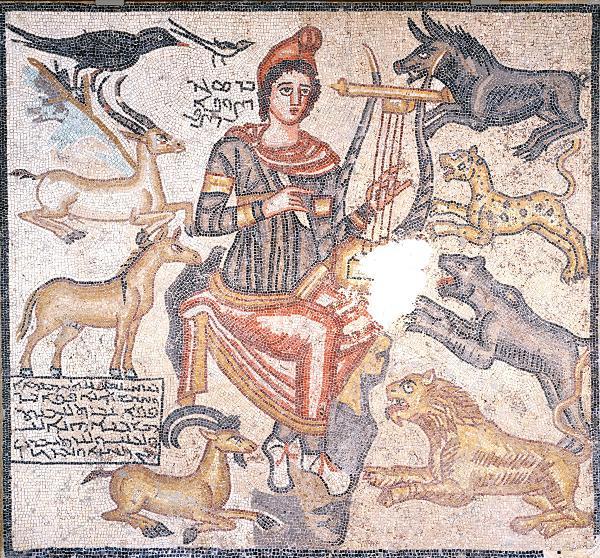|
Orpheus
Orpheus (; Ancient Greek: ßĮłŽüŽå╬ĄŽŹŽé, classical pronunciation: ; french: Orph├®e) is a Thracian bard, legendary musician and prophet in ancient Greek religion. He was also a renowned poet and, according to the legend, travelled with Jason and the Argonauts in search of the Golden Fleece, and even descended into the Underworld of Hades, to recover his lost wife Eurydice. Ancient Greek authors as Strabo and Plutarch note Orpheus's Thracian origins. The major stories about him are centered on his ability to charm all living things and even stones with his music (the usual scene in Orpheus mosaics), his attempt to retrieve his wife Eurydice from the underworld, and his death at the hands of the maenads of Dionysus, who tired of his mourning for his late wife Eurydice. As an archetype of the inspired singer, Orpheus is one of the most significant figures in the reception of classical mythology in Western culture, portrayed or alluded to in countless forms of art and popular ... [...More Info...] [...Related Items...] OR: [Wikipedia] [Google] [Baidu] |
Eurydice
Eurydice (; Ancient Greek: ╬ĢßĮÉŽüŽģ╬┤╬»╬║╬Ę 'wide justice') was a character in Greek mythology and the Auloniad wife of Orpheus, who tried to bring her back from the dead with his enchanting music. Etymology Several meanings for the name ''Eurydice'' have been proposed such as "true judgement" or "profound judgement" from the Greek: ''eur dike''. Fulgentius, a mythographer of the late 5th to early 6th century AD, gave the latter etymological meaning. Adriana Cavarero, in the book ''Relating Narratives: Storytelling and Selfhood'', wrote that "the etymology of Eurydice seems rather to indicate, in the term ''eurus'', a vastness of space or power, which, joining to ''dike'' nd thus ''deiknumi'', to show designates her as 'the one who judges with breadth' or, perhaps, 'she who shows herself amply'". In some accounts, she was instead called Agriope, which means "savage face". Mythology Marriage to Orpheus, death and afterlife Eurydice was the Auloniad wife of musicia ... [...More Info...] [...Related Items...] OR: [Wikipedia] [Google] [Baidu] |
Orpheus Mosaic
Orpheus mosaics are found throughout the Roman Empire, normally in large Roman villas. The scene normally shown is Orpheus playing his lyre, and attracting birds and animals of many species to gather around him. Orpheus was a popular subject in classical art, and was also used in Early Christian art as a symbol for Christ. The standard depiction in Roman mosaic scenes (for the Romano-British variant see below) shows him seated and playing a lyre or cithara, wearing a Phrygian cap, often beside a tree, and includes many animals drawn and pacified by his playing. The fox was considered Orpheus's special animal and may be placed beside him. In large examples the animals spread to occupy the whole floor of a room. Titles such as ''Orpheus Charming/Taming the Beasts'' may be used. Usually the whole scene occupies the same space, but sometimes Orpheus and the animals are each in compartments separated by borders with geometrical decoration. An example of the usual composition with ... [...More Info...] [...Related Items...] OR: [Wikipedia] [Google] [Baidu] |
Pimpleia
Pimpleia (Ancient Greek: ╬Ā╬»╬╝ŽĆ╬╗╬Ą╬╣╬▒) was a city in Pieria in Ancient Greece, located near Dion and ancient Leivithra at Mount Olympus. Pimpleia is described as a "╬║ŽÄ╬╝╬Ę" ("quarter, suburb") of Dion by Strabo. The location of Pimpleia is possibly to be identified with the modern village of Agia Paraskevi near Litochoron.An Inventory of Archaic and Classical Poleis: An Investigation Conducted by The Copenhagen Polis Centre for the Danish National Research Foundation by Mogens Herman Hansen, 2005, page 797 It was renowned as the birthplace and early abode of Orpheus. Many springs and memorials dedicated to Orpheus and Orphic cults. Cults of the Muses In ancient Greek religion and mythology, the Muses ( grc, ╬£╬┐ß┐”Žā╬▒╬╣, Mo├╗sai, el, ╬£╬┐ŽŹŽā╬ĄŽé, M├║ses) are the inspirational goddesses of literature, science, and the arts. They were considered the source of the knowledge embodied in the p ... were also celebrated, under the epithet ''Pimpleids'' (╬Ā╬╣╬╝ŽĆ╬╗╬Ę╬»╬┤╬ĄŽ ... [...More Info...] [...Related Items...] OR: [Wikipedia] [Google] [Baidu] |

